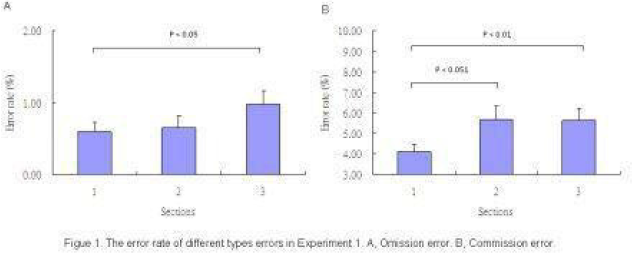No CrossRef data available.
Article contents
1196 – The Cognitive Enhancement Effect Of Chewing Betel Nut Measured By a Continuous Performance Test
Published online by Cambridge University Press: 15 April 2020
Abstract
The pharmacological properties of betel nut which is consumed in immense quantities in the East as a cognitive enhancer. There was no evidence to prove the cognitive enhancement effect of chewing bet nut.
We tried to demonstrated that chewing betel nut enhanced cognitive performance, mainly attention, especially when they felt fatigue.
First, we demonstrated the fatigue effect induced by repeated continuous performance attention tests. Second, we tested the cognitive enhancement effect induced by betel nut.
Experiment 1, thirty-four volunteers, naive to betel nut, performed a continuous performance test three times without chewing anything before-and-during the test. Experiment 2, seventeen subjects who are used to chew betel nut performed the same tests. During the second and third session, they were given two pieces of gums or five piece of betel nut to chew. The sequence of chewing were counterbalanced.
In experiment 1, omission error rate was significantly different between section 1 and 3. Commission error was significantly different between section 1 and 2, 3 (Figure 1). In experiment 2, omission error rate was significantly different between baseline and section of chewing betel nut (Figure 2). Commission error rate had no difference between three sections. In both experiments, reaction time of different sections had no difference.
[Figue 1. The error rate of different types errors.]

Chewing betel nut could reverse the increase of omission error rate but chewing gum could not improve it. Either chewing betel nut or gum improved commission error rate. This study demonstrate the cognitive enhancement effect of chewing betel nut.
- Type
- Abstract
- Information
- European Psychiatry , Volume 28 , Issue S1: Abstracts of the 21th European Congress of Psychiatry , 2013 , 28-E567
- Copyright
- Copyright © European Psychiatric Association 2013



Comments
No Comments have been published for this article.